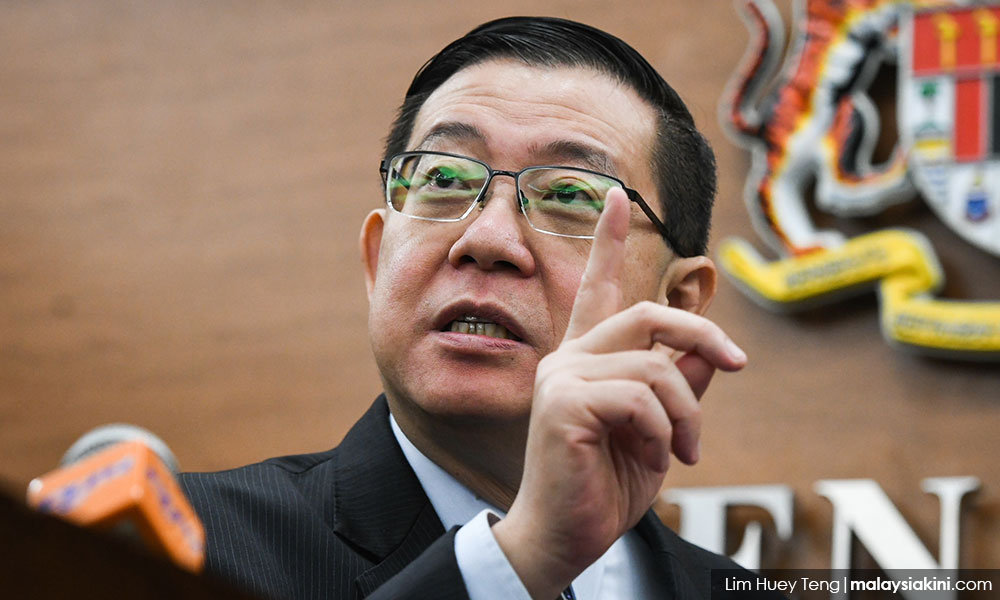
My trip to Hong Kong from Sept 13 to 14 to speak during the CLSA 25th Anniversary Investment Forum emphasised that Malaysia is on the right economic track away from the global kleptocratic position and towards sustainable growth, with fiscal discipline, prudent budgeting, monetary stability and low inflation.
This has helped to reinforce investor sentiment that the economic fundamentals of Malaysia remain strong, further enhanced by the new government’s commitment towards institutional reforms that promote 'CAT' governance – competency, accountability and transparency.
Dr Mahathir Mohamad’s return to the prime ministership of the new government showcases its mix of experience and youth, administrative and technical competence, as well as its passion to clean up Malaysia and fight corruption.
While Malaysia must grapple with the RM1 trillion debt for the next three years caused by the 1MDB financial scandals and the decline in the value of the ringgit caused by the looming trade war between United States and China, Malaysia remains an attractive option.
Despite these drawbacks, the ringgit and capital markets have not collapsed because investors are aware that these are legacy issues of corruption from the previous regime, and are confident that the new government is committed to cleaning up the country and liberating it from its international disrepute as a “global kleptocracy at its worst.”
The trade war also benefits Malaysia because it can be safe harbour for both US and Chinese investors and manufacturers. In light of these, there needs to be an economic roadmap to put Malaysia on a path from global kleptocracy to sustainable growth with fiscal discipline, prudent budgeting, monetary stability and low inflation.

Investors are aware that this is reflected by record-high business and consumer confidence in Malaysia. In other words, while Malaysia may be suffering from legacy issues and global factors outside our control, with institutional reforms, the only way to go is up.
If Malaysia can successfully navigate the fiscal challenges over the next three years, those who invest now can expect substantial profit or returns on investment later. We are aware of the challenges that we have to face following the abolishment of the goods and services tax (GST), particularly the consequent shortfall in revenue and other related risks such as the outstanding tax refunds.
Rest assured, discussions between government agencies and policymakers continue to take place in regard to how these challenges will be managed.
Public Finance Committee (PFC)
The government has established the Public Finance Committee (PFC) with a mandate to strengthen public finances and drive the medium-term fiscal strategy. The PFC will be chaired by myself as the finance minister, alongside the economic affairs minister and the Bank Negara governor residing as members.
This PFC will be the key platform in balancing the obligation to be fiscally responsible while at the same time ensuring continuous spending and investment for our future economic growth. This committee will also devise strategies and plans in managing fiscal challenges given the abolishment of GST, all of which would be incorporated in a medium-term framework on fiscal consolidation.

GST refunds
The GST refunds that were not channelled to businesses have affected their cash flow management and cost of doing business, which will eventually be passed on to consumers. This is why the government will honour the refunds from next year, despite the financing constraint from the debt burden we face.
In order to manage the fiscal position, disbursements will be phased gradually. Payments for small businesses will be prioritised, as they are likely to be most affected by the delay in the refund.
Financing options
There are several options available to meet financing needs in the short-term that do not adversely impact growth. In identifying the optimal mix of financing options, the government will be guided by the following principles.
First, the priority is towards finding the lowest financing cost. Second, the timing and size of fundraising will be guided by the ability of the financial markets to absorb it in an orderly manner and avoid unintended consequences. Third, any form of strategy adopted will be focused on maintaining the overall confidence in fiscal sustainability and economic resilience.
In avoiding an overreliance on any one specific strategy to meet our financing needs, a combination of the following options will be considered:
Issuance of debt
The government has repeatedly expressed that we will be very prudent in handling debt and liabilities, which is already high at over than RM1 trillion. It must be said, however, that the benefits of sovereign debt issuance are plenty. This method is the simplest, most reliable, and easiest to manage due to the size of our institutional investors.
Rest assured that the additional debt issuance will be gradual as well as transparent to the market via announcements through the auction calendar as per current practice. This will ensure that investors would be able to absorb the additional issuances without major adjustments in yields that could increase the borrowing cost of the government.
Asset monetisation
The second option is for the government to monetise some of its non-critical and nonstrategic assets by engaging in the sale of shares, land, and leasing of idle Government assets and buildings. We will ensure that this will be deployed in compliance with the highest standard of governance and transparency without disruption to the business community and the people.
Balancing short-term fiscal gains and long-term revenue streams and growth is imperative to this government. A mixed policy strategy has many stakeholders, and we will ensure that they are all engaged and considered to ensure a thorough and balanced fiscal strategy that minimises negative impacts.
At the same time, these stakeholders must also realise the goal of the government is to achieve a strategy that benefits the nation and the rakyat as a whole.
LIM GUAN ENG is the finance minister of Malaysia. -Mkini


No comments:
Post a Comment
Note: Only a member of this blog may post a comment.